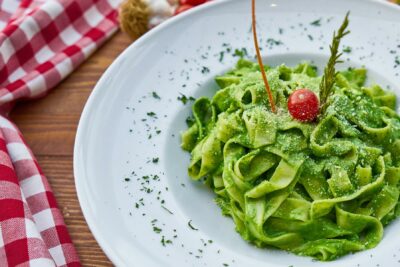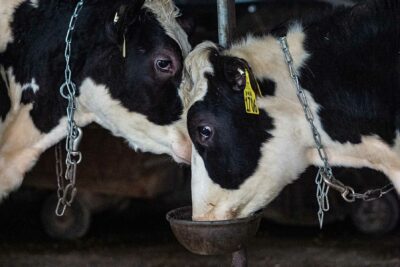More people than ever are switching to a vegan diet, and this trend is happening all over the world. So, here’s the lowdown on all things vegan, what it is, and how to get started.
What Is the Vegan Diet?
A vegan diet seeks to exclude, as far as is practical and possible, all ingredients that are taken from animals. That means meat and fish, of course, but also eggs, dairy, honey, and the many animal byproducts that find their way into the products that we buy.
What Are the Different Types of Vegan Diets?
Most vegans eat a very varied range of foods. We eat everyday foods such as pizza, burritos, pasta, and curries, all made with plant-based ingredients, but we also love to explore the wealth of animal-free foods available to us. As a result, many new vegans say they have never eaten such a wide range of delicious foods. Yes, we are likely to eat a lot of fruits, vegetables, legumes, nuts, herbs and salads, but also we are likely to enjoy vegan cakes and ice creams, cheese and cheesecakes, too. There is a vegan version of just about every food we love, and one thing is certain: Veganism is absolutely not about deprivation. It’s about embracing abundance.
Of course, some people have different preferences and motivations for eating vegan, and they may choose to follow a different dietary path, including:
- Whole Food Vegan Diet. This is probably the healthiest diet of all. It’s based around eating whole foods and reducing or eliminating processed foods and refined sugars. It generally requires some cooking ability but the rewards can be seen in the great health benefits it brings.
- Raw Food Vegan Diet. This way of eating seeks to increase the amount of raw foods eaten each day. Again, processed foods are eliminated, as are all animal products. It is amazing what you can make from raw ingredients, even delicious desserts!
- 80/10/10 Diet. With this low-fat, raw-food diet, people will aim to get 80 percent of their calories from complex carbohydrates, and just 10 percent each from fats and protein. Critics say it is overly restrictive, and it can also be time-consuming to have to work out the proportions but it works for some!
- The Starch Solution is a whole food plant-based diet, which was developed by Dr. John McDougall. He encourages people to focus on complex carbohydrates, such as sweet potatoes, brown rice and quinoa as a naturally nutritious and filling basis for meals.
- Raw Till 4. By eating raw plant foods until 4pm each day, we can ensure we are taking in fresh and wholesome whole foods for a good part of the day. After that, dinner could be vegan lasagna, enchiladas, or whatever else you fancy.
- The Thrive Diet was developed by vegan athlete Brendan Brazier. The focus is again on raw vegan foods but this time eaten in small meals throughout the day to keep blood sugar stable.
- ‘Junk Food’ Vegan Diet. We are not keen on the term ‘junk food’ and prefer to call it ‘convenience food’, and almost every one of us relies on convenience foods at some stage. Sure, they may not be the healthiest option if we eat them every day but this way of eating is much better for animals and the planet than eating the meat-based versions.
What Does a Vegan Lifestyle Mean?
There are so many reasons why people choose to eat vegan, and it means different things to each of us. For many, it can be about compassion, equity and food justice, personal health and well-being, care for the Earth, sustainability, and public health.
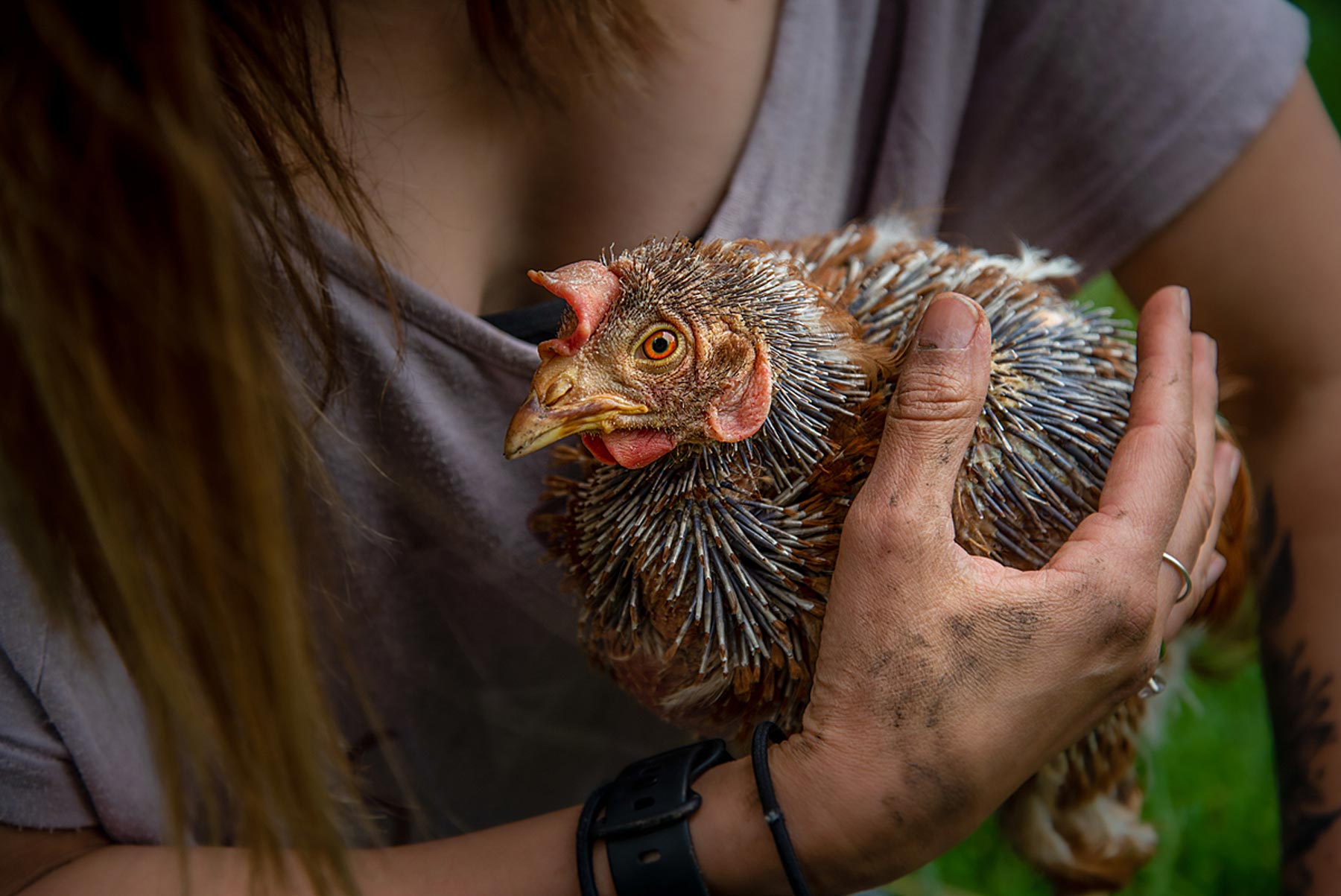
Displaying Personal Conviction Through Action
Surveys consistently show that most people love animals, and most are disgusted by factory farming. And yet, when we eat animal products, we know that animals suffer appallingly inside giant industrial farms. We may try to suppress this knowledge but deep down we know that animals suffer when we exploit them for their meat, milk, and eggs. When we become vegan, we put our principles into action, and end our role in the harming and killing of animals.
Acting on Your Love of Animals
Those of us who share our homes with a dog, cat or other animal readily accept that our hearts are stolen by these special beings in our lives. And if we thought about it, we would also realize that we would love a sheep, pig or cow too if only we got to know them. Being vegan extends our love for animals to all animals, and not just the individuals we have gotten to know personally.
Reducing the Environmental Impact of the Animal Industry
Farming animals puts a huge burden onto our planet. It drives climate breakdown and deforestation. It pollutes air, rivers and oceans. It demands so much land that wild animal and plant species are in freefall. And it uses so many resources (83 percent of all farmland, for example) while providing just 18 percent of our calories. Being vegan is far more sustainable and much kinder to the Earth.
Embracing the Idea of “Do No Harm”
The wonderful thing about eating a vegan diet is that it protects farmed and wild animals, wild spaces, trees and rivers, oceans, and air. It significantly reduces the amount of resources we need which means there is sufficient nutritious food for everyone and, if everyone adopted it, we could return 75 percent of existing farmland to nature. It is a way of eating that brings us into harmony with the natural world, and ensures we tread lightly.
Holding All Lives As Sacred
When we eat a plant-based diet we are saying: I will not take more than my share and I will not harm others with my choices. It is the most beautiful and loving action we can take.
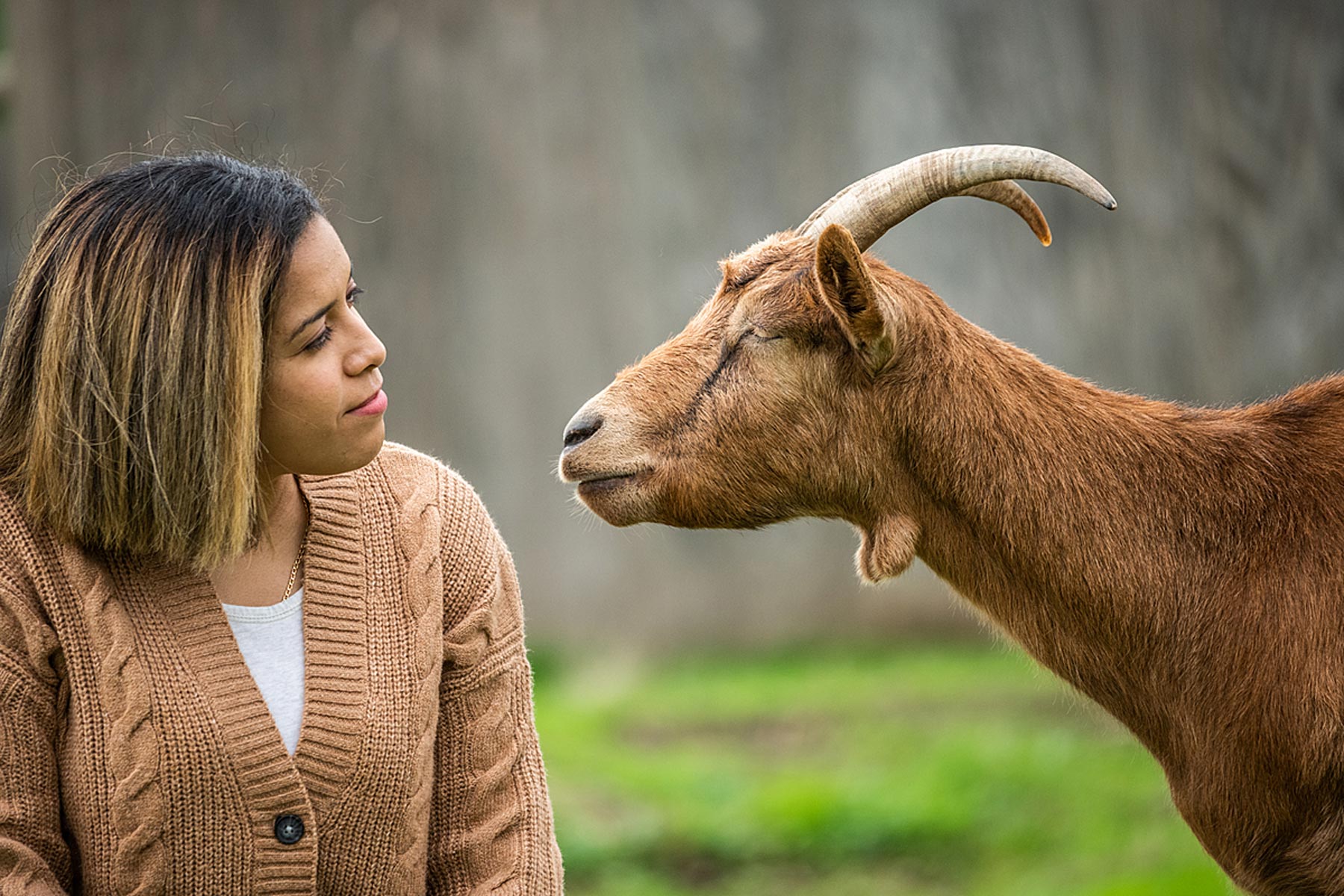
What Vegan Does to Your Body
Perhaps the best thing of all is that when we choose to eat in a way that protects others, it protects us, too. We are all connected, and what is good for one is good for all.
Reduced Risk of Diabetes
Type 2 diabetes can be prevented, halted, and even reversed with simple lifestyle changes, including eating a plant-based diet. One study found that a whole food vegan diet controlled blood sugar three times more effectively than the traditional diabetes diet.
Reduced Risk of Cardiovascular Disease
A whole food vegan diet is a heart-healthy diet. Studies show that switching meat for plant-based alternatives improves several cardiovascular disease risk factors by significantly reducing blood pressure, LDL cholesterol, and triglycerides in just eight weeks.
Reduced Risk Of Cancer
Processed meat causes cancer and all red meat is “probably carcinogenic,” with even a moderate intake of red meat raising the cancer risk. Conversely, research shows that those who eat a plant-based diet have a reduced risk of several different cancers.
Improved Mood
New vegans often find that the health benefits they experience extend to their mental health, too. It could be down to a healthier gut, better sleep, a clearer conscience, or something else entirely. We don’t know! We just know that it is one powerful change that is commonly reported.
Healthier Skin
Fresh fruits and vegetables contain antioxidants that help to protect skin from cellular damage, so when we increase the amount of food we eat from plants we get all the benefits. The beta carotene, lutein, vitamin C, selenium, and vitamin E all combine to give that beautiful “vegan glow”.
Becoming More Sustainable
Because plant-based foods require far fewer resources to make than foods taken from animals, we reduce our climate impact, as well as our impact on the health of waterways, forests, and other habitats. A sustainable diet is good for everyone, and a plant-based diet is the most sustainable diet of all.
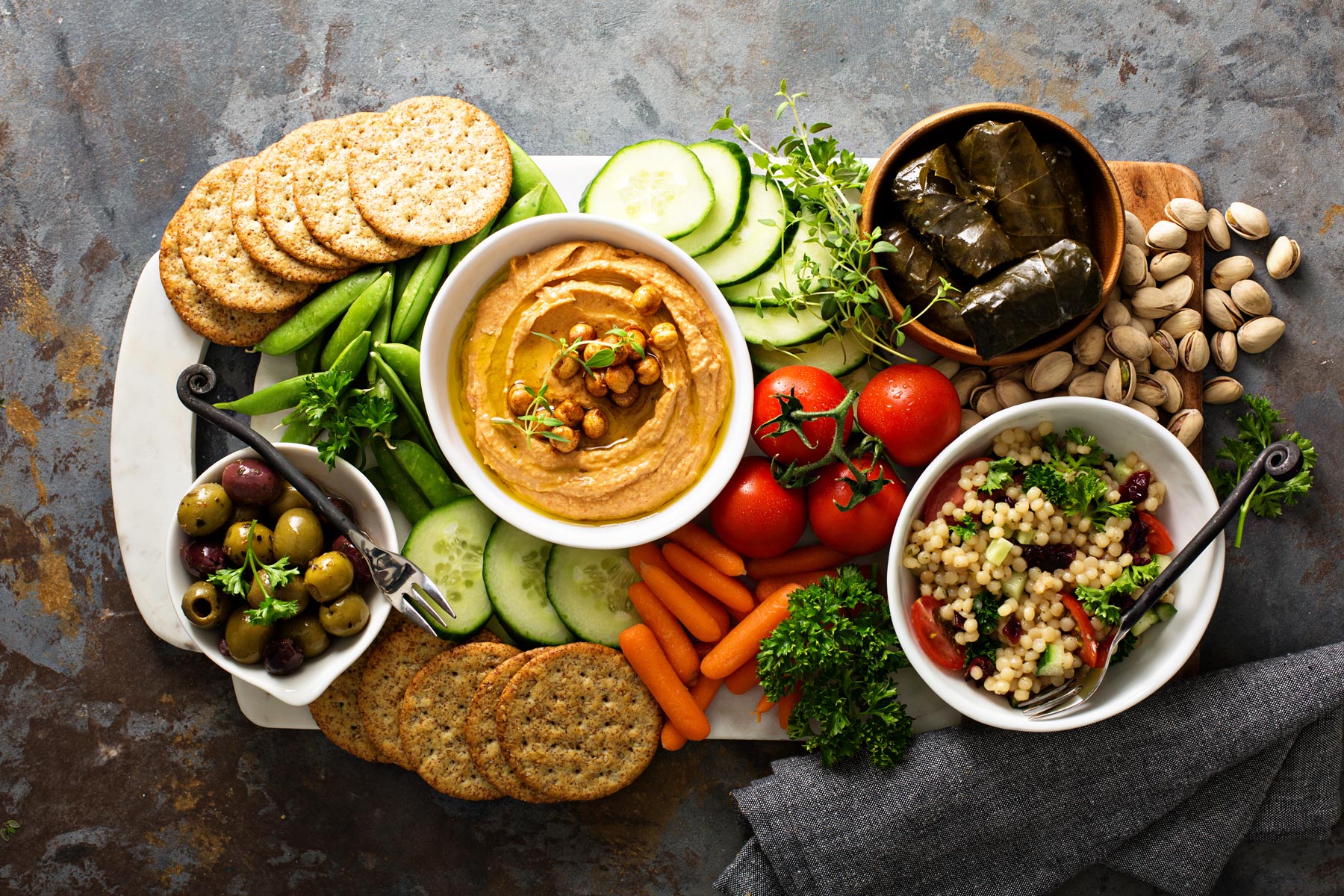
Is Vegan the Healthiest Way To Live?
When you take into account the impacts of farming and eating animals—including the direct health impacts, the public health impacts of antibiotic resistance and pandemic potential, the destruction of the planet, and the heating of the climate—it is clear that eating plants is the healthiest option for us all.
Vegan Nutrition
One reason why a vegan whole food diet is so healthy is that we can get every single nutrient we need without any of the bad stuff that drives chronic disease and illness.
Why a Vegan Lifestyle Is Better
If we are looking for a way to eat that is delicious and satisfying, keeps us connected with our cultures and traditions, is kind to animals and the planet, and ensures there is sufficient food in the world for everyone, then that would be a vegan diet!
How To Start a Vegan Lifestyle
Some people just decide to eliminate all products right here, right now, and they simply become vegan. But for most of us, it is more of a process. We may remove one item that was taken from animals, such as cows’ milk, and replace it with the plant version—oat, rice, soy, coconut, cashew, hazelnut, or hemp milk. Then, we may consider a different product.
Or we may remove red meat first, then white meat and fish. Or we may start by eating one vegan meal a day, or having three vegan days a week. Each of us will choose the way that works best for us. Most people find it helpful to have a little support, guidance, and motivation along the way, and that is why we produced our 30-Day Try Vegan challenge. Sign up for free and you’ll have us in your corner for 30 days.
Educate Yourself About the Vegan Lifestyle
We are most motivated when we know our why and becoming vegan is easiest when we know how. So, take a little time to do some research. Watch films like Cowspiracy, Game Changers, and What The Health. Read up a little on nutrition to make sure you know which foods to include, and bookmark a few tasty recipes to get you started.
Practice Veganism
There is no perfect vegan, which means we get to practice veganism every day. Some days we may slip up; we might make a mistake or succumb to temptation. We’re human, and we are not living in a perfect world. We do our best to make choices that are good for us, other people, our planet and animals, and if we fall off the vegan wagon, we dust ourselves down, and we try again.
Share With Your Friends and Family
Being vegan is easier and more enjoyable when you have family and friends around you who are vegan or at least vegan-sympathetic, too. So, take some time to gently explain your food choices to the people you care about. Maybe they will feel inspired to make some changes in their own lives, too, and you can embark on this new adventure together. If not, that’s okay, but at least they will understand your motivations a little better.
Join a Vegan Community
Even if you are the only vegan you know, you are not the only vegan in the world! There are millions of us, so connect with the vegan community, either online or in person, and spend some time with likeminded people. You’ll find groups for vegan runners, bakers, knitters, strength athletes, as well as vegans of different faiths and communities. Go ahead and see if you can find your vegan tribe.
You Can Help Ensure Animals Are Treated Well
It can be heartbreaking to know that animals are suffering inside factory farms and slaughterhouses right now. And while fewer animals will be bred and forced to endure these torments as a result of our vegan food choices, we have to accept there is not much we can do to protect the animals already in this pitiless system.
But some animals do escape it. They are rescued, and find their ways to loving sanctuaries. If you go along to meet them, you will have an unforgettable experience. And while you’re there you may like to donate your time or some money to help ensure they continue to live the lives they always deserved.
Become an Advocate for Animals By Joining an Organization
Being vegan is enough. It is the single most effective way we can protect the planet and animals, so thank you for every step you take towards veganism. If you would like to do more, however, you could join an organization to support their campaigns and lobbying work. There are many fantastic NGOs, from those conducting undercover investigations to those who train volunteer school speakers or lobby governments. Whatever our strengths, availability and preferences, there is always something we can do for animals.
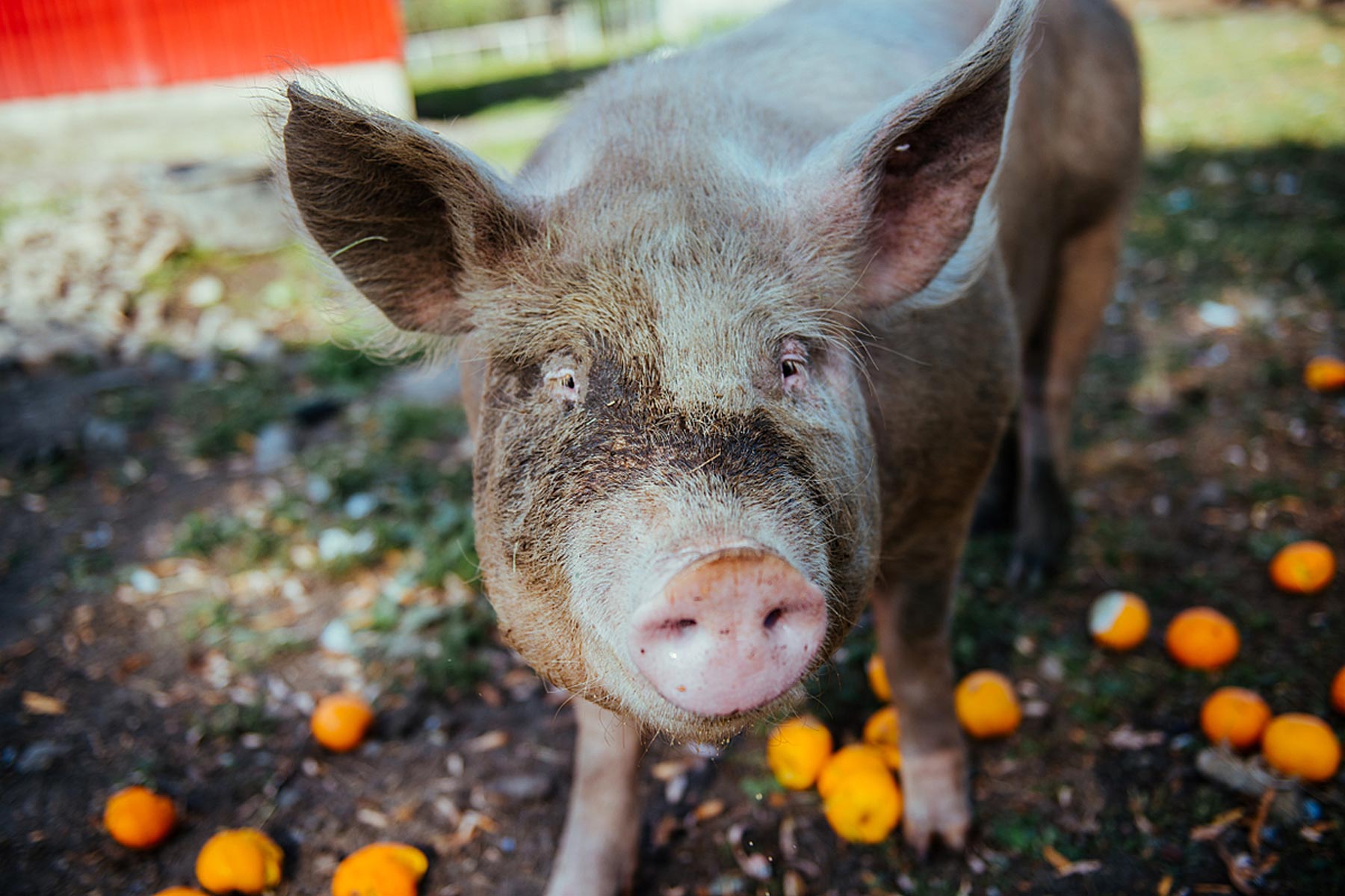
Vegan Lifestyle Frequently Asked Questions
Got questions? We thought you might! Here are a few of the most commonly asked questions we get …
How Do I Deal With Negative Responses?
Either ignore them or respond with compassion. We should remember that we were once ignorant of the facts, too, and in our experience, those who shout loudest are often the ones closest to becoming vegan. Help them on their way by showcasing veganism as compassion in action.
How Do I Make a Plant-based Diet Affordable?
Studies show that eating a vegan diet is actually less expensive than eating meat and dairy. That is because beef is more expensive than beans, and chicken is more expensive than chickpeas. Adapt your recipes using low-cost, low-fat, plant alternatives and keep convenience foods to a minimum, then you should see the cost come down.
Do I Have To Give Up Going to Dinner at Other People’s Houses?
Hopefully not! If you know the host well, you can ask if they are able to cater for you. If they are unsure, offer to take a vegan dish and match it as closely as possible to whatever the host is cooking. If the host is happy to make a special meal just for you, you might like to offer to take a dessert that everyone can enjoy.
What Should I Do if I Have A Wobble and Really Crave Some Meat?
Sometimes old habits simply refuse to go quietly, and it can take quite some time for new habits to become second nature. We get it. Our advice is to keep some of the tastiest vegan meats on standby for just such an occasion. If fried chicken is your weakness, keep a box of vegan fried chick*n to hand. If you’re craving sausages, burgers, kebabs, or anything else, you should know that there is a plant-based version already available. But if you wobble and fall, that’s okay. It’s not the end of your vegan adventure. It’s just a stumble.
What if I Am Not That Keen on Eating Plants?
People who dislike vegetables have probably been fed some pretty dreadful meals in the past. But there are so many plant foods and so many ways of cooking them that we feel sure your horizons will expand. You can put veggies into a risotto, cover them in a sauce, chop them finely and add them to muffins, roast them in spices, or blend them into a creamy soup, for example. You will also be amazed at what can be made from plants, including foods that look, cook and taste like meat, eggs, and dairy. So perhaps this is a great way to eat more plants without actually noticing that you’re doing so!
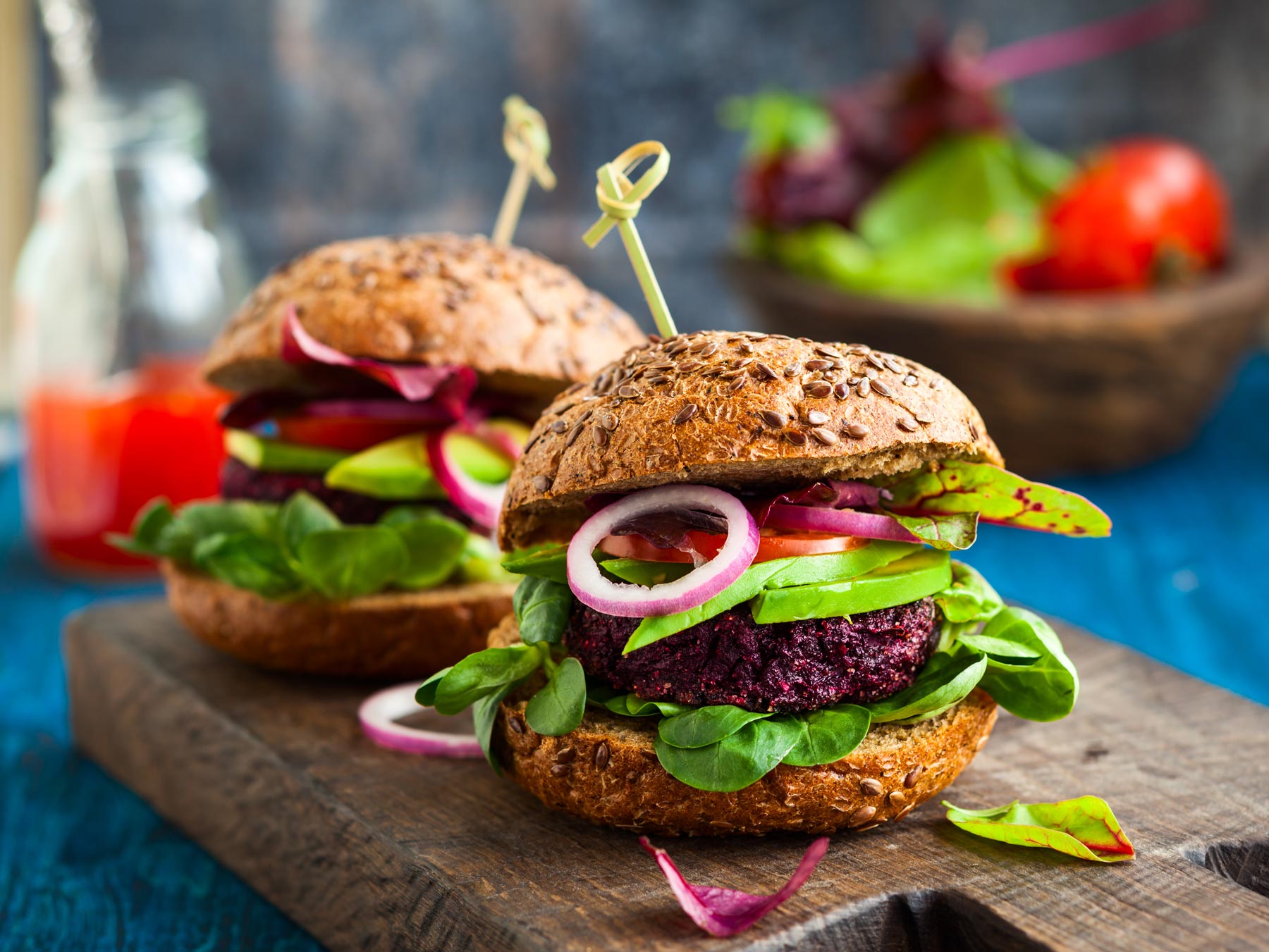
How Can I Keep My Diet Varied and Interesting?
Research shows that most people eat the same few meals on repeat, but new vegans often find their food options grow rapidly. That is because they may eat the same foods they always did—Bolognese, curry, pizza, hot dogs, and so on— but they also discover a wealth of new recipes and meal ideas. There are millions of vegan recipes freely available online, and hundreds of cookbooks if you prefer to be able to spatter your pages in whatever you are cooking! We recommend these great sites to get you started:
What if My Partner Doesn’t Want To Go Vegan?
You should leave them. We’re kidding, of course.
We have found the fastest way to turn someone off veganism is to demand that they become vegan or pressure them to do so. A more compassionate (and successful) approach is to showcase the food, talk about your own decisions and thoughts, invite them to watch some of the excellent vegan documentaries with you, and then let them find their own route to it. It may not be your route, and they may never become fully vegan, but if they understand and respect your choices and views, we hope you will find a workable compromise until such time as they feel ready to join you.
Is Veganism Safe for Children?
It absolutely is, and millions of people are bringing up happy, healthy vegan children.
Plus, a vegan diet for children is supported by health organizations around the world, including the world’s largest organization of nutritional professionals, the American Academy of Nutrition and Dietetics, the NHS in the UK, and the First Steps Nutrition Trust.
What if I Slip Up and Break My Vegan Streak?
You don’t need to worry about it. Simply remind yourself why veganism is important to you, and start again.
